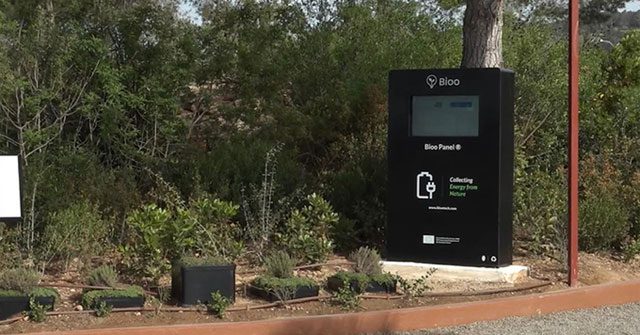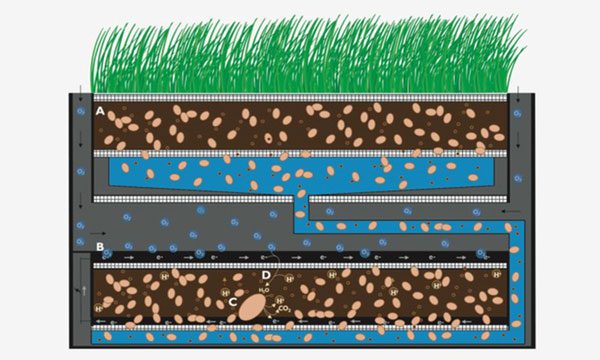The Spanish startup Bioo is developing a type of bio-battery that uses microorganisms to generate electricity.

Bioo bio-battery being tested in Spain. Photo: CNBC.
The prototype for this new renewable energy model is being tested in a park on the island of Ibiza, Spain. It is not a giant wind turbine or a solar panel field; instead, it is a type of bio-battery buried beneath the surface that can generate electricity from microorganisms in the soil.
Pablo Vidarte, the founder of the biotechnology startup Bioo, came up with this innovative idea. “I wondered if it was possible to turn the leaves of a plant into a solar panel. The short answer is no, but there are ways you can actually view nature as a battery to produce energy without harming the environment,” Vidarte shared.
When it rains or the ground is watered, nutrients and microorganisms seep from the soil into the Bioo bio-battery. Inside the battery, microorganisms consume organic matter, producing protons and electrons, sending electrons to the positive terminal and protons to the negative terminal. Air passes through holes in the panel’s contact area, providing oxygen. This process generates a current that can power lights or sensors. If scaled up, it has the potential to meet the energy needs of an entire home.

Bioo bio-battery using soil microorganisms to generate electricity. Photo: Fast Company.
“Soil batteries are a source of electricity generation both day and night. Whether it rains or snows, it produces a consistent amount of energy. Unlike large solar farms that can disrupt nature—such as in South Korea, where 2 million trees have been cut down in recent years to make way for solar panels—bio-batteries can operate without impacting crops in the fields. The technology uses materials (like graphite) that are more abundant than those used in solar panels, so when mass-produced, it has the potential to be competitively priced,” Vidarte emphasized.
One of the first applications of this technology will be in farms, where bio-batteries can power data-collecting sensors for soil moisture and pH levels, mapping fields so farmers can optimize crop growing conditions. Currently, these types of sensors often use traditional batteries that are less sustainable and need to be replaced continuously.
The company is also researching additional testing technology to turn plants into “switches” that activate light or sound. Bioo’s bio-battery is expected to hit the market by the end of 2021 or early 2022.





















































